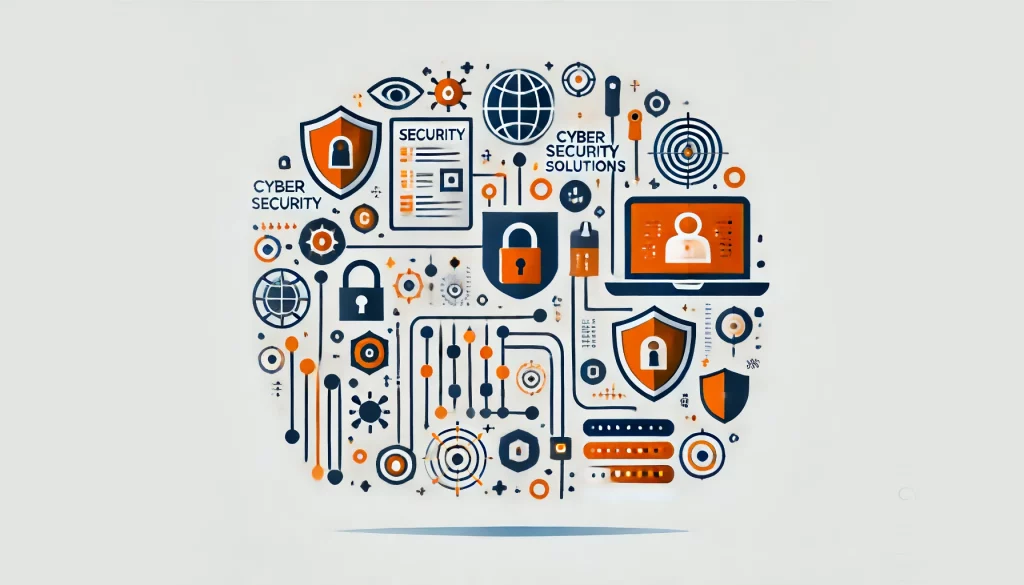
Cybersecurity Services for a Secure and Compliant Digital Environment

Organizations face a multitude of cyber threats that can compromise their sensitive data, disrupt operations, and damage reputations. Cyber security services have become essential for businesses of all sizes to protect their digital assets and maintain the trust of their customers. This article explores the various aspects of cybersecurity services and how they help organizations defend against evolving cyber threats.
The Importance of Cyber Security Services
Cyber attacks can have devastating consequences for organizations, ranging from financial losses to legal liabilities. According to a recent study, the average cost of a data breach reached $4.24 million in 2021. Moreover, the damage to reputation caused by a cyber incident can be long-lasting, eroding customer trust and loyalty.
Cybersecurity services provide a proactive approach to protecting digital infrastructure. By implementing robust security measures, detecting potential threats, and responding effectively to incidents, these services help minimize the risk of successful cyber attacks.
Types of Cyber Security Services
Cybersecurity services encompass a wide range of solutions designed to address different aspects of security posture. Some of the key areas include:
Network Security
Network security services focus on protecting communication infrastructure from unauthorized access and malicious activities. These services often involve the implementation of firewalls, intrusion detection and prevention systems (IDPS), and virtual private networks (VPNs). By monitoring network traffic and enforcing access controls, network security services help prevent unauthorized users from accessing sensitive data or launching attacks.
Endpoint Security
Endpoint security services aim to secure the devices that connect to an organization’s network, such as computers, smartphones, and IoT devices. These services typically include antivirus and anti-malware software, as well as device management solutions that ensure endpoints are properly configured and patched. Endpoint security helps prevent malware infections, unauthorized access, and data leakage through compromised devices.
Application Security
Application security services focus on identifying and mitigating weaknesses in software applications. These services involve secure coding practices, regular vulnerability assessments, and penetration testing. By identifying and addressing weaknesses in applications, organizations can prevent attackers from exploiting them to gain unauthorized access or manipulate data.
Cloud Security
As more organizations adopt cloud computing, cloud security services have become increasingly important. These services help secure data and applications hosted in cloud environments, ensuring compliance with security standards and regulations. Cloud security services often include access control, data encryption, and continuous monitoring to detect and respond to potential threats.
Incident Response and Forensics
Despite the best prevention efforts, cyber incidents can still occur. Incident response and forensics services help organizations quickly detect, contain, and recover from security breaches. These services involve the development of incident response plans, the deployment of monitoring tools, and the analysis of security logs to identify the root cause of an incident. By responding promptly and effectively to security incidents, organizations can minimize the impact of a breach and prevent future occurrences.
The Benefits of Partnering with a Cyber Security Service Provider
While some organizations may choose to handle cybersecurity in-house, partnering with a dedicated cyber security service provider offers several advantages:
Expertise and Experience
Cybersecurity service providers have the expertise and experience needed to stay ahead of evolving cyber threats. They employ skilled professionals who specialize in various aspects of cybersecurity, from network security to incident response. By leveraging their knowledge and best practices, organizations can enhance their security posture and reduce the risk of successful attacks.
Cost-Effectiveness
Building and maintaining an in-house cybersecurity team can be costly, especially for small and medium-sized businesses. Cybersecurity service providers offer a cost-effective alternative, allowing organizations to access advanced security solutions and expertise without the need for significant upfront investments. Additionally, outsourcing cybersecurity can help organizations avoid the costs associated with hiring, training, and retaining in-house security personnel.
24/7 Monitoring and Support
Cyber threats can occur at any time, making round-the-clock monitoring essential for timely detection and response. Cybersecurity service providers offer 24/7 monitoring and support, ensuring that potential threats are identified and addressed promptly. This continuous monitoring helps minimize the impact of security incidents and provides organizations with peace of mind knowing that their digital assets are always protected.
Compliance Assistance
Many industries are subject to strict security and privacy regulations, such as HIPAA, PCI DSS, and GDPR. Cybersecurity service providers can help organizations navigate these complex compliance requirements by implementing appropriate security controls and providing guidance on best practices. By ensuring compliance with relevant regulations, organizations can avoid costly fines and reputational damage.
Real-World Examples of Cyber Security Services in Action
To illustrate the effectiveness of cybersecurity services, let’s look at a few real-world examples:
Preventing Ransomware Attacks
A manufacturing company partnered with a cybersecurity service provider to strengthen its defenses against ransomware attacks. The service provider implemented endpoint protection solutions, regular vulnerability assessments, and employee security awareness training. When a ransomware attack targeted the company, the security measures in place quickly detected and contained the threat, preventing significant damage and downtime.
Securing Remote Work Environments
During the COVID-19 pandemic, a financial services firm needed to rapidly transition to a remote work model. The firm engaged a cybersecurity service provider to secure its remote workforce. The provider implemented secure VPN connections, multi-factor logging in, and endpoint security solutions. These measures ensured that remote employees could access company resources securely, minimizing the risk of data breaches and unauthorized access.
Detecting and Responding to a Data Breach
An e-commerce company experienced a data breach that exposed customer information. The company’s cybersecurity service provider quickly detected the breach through continuous monitoring and launched an incident response plan. The provider worked with the company to contain the breach, assess the damage, and notify affected customers. The prompt response helped minimize the impact of the breach and demonstrated the company’s commitment to protecting customer data.
Conclusion
By partnering with a reliable cybersecurity service provider, organizations can strengthen their defenses against evolving cyber threats, ensure compliance with regulations, and minimize the impact of security incidents.
When selecting a cybersecurity service provider, organizations should consider factors such as expertise, reputation, and the range of services offered. By choosing a provider that aligns with their specific needs and industry requirements, organizations can effectively safeguard their digital assets and focus on their core business objectives.
Investing in comprehensive cybersecurity services is not just a matter of protecting against threats; it is also an investment in the long-term success and resilience of an organization. As cyber threats continue to evolve, organizations that prioritize cybersecurity will be better positioned to navigate the digital landscape with confidence and trust.
